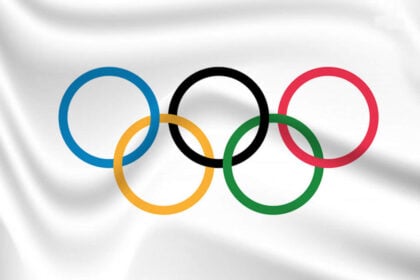
Hosting the Olympic Games is often seen as a double-edged sword. On one side, there’s the potential for global recognition, tourism boosts, and long-term infrastructure improvements. On the other, the financial risks are substantial, with the possibility of massive cost overruns and underutilized infrastructure post-Games.
Now that the Paris 2024 Olympics have concluded, it is crucial to analyze the financial implications of hosting the Games by examining both past successes and failures, as well as the actual outcomes for Paris.
Financial Costs of Hosting the Olympics
Infrastructure and Operational Costs
The financial burden of hosting the Olympics primarily falls into two categories: infrastructure and operational costs.
1. Infrastructure Costs: Hosting the Games requires the construction or upgrading of sports facilities, the Olympic Village, and transportation infrastructure. The financial demands in this area are staggering, with costs ranging from $5 billion to over $50 billion depending on the host city. For example, the 2008 Beijing Olympics saw infrastructure costs soar above $40 billion, while more modest investments were made by Los Angeles in 1984 by leveraging existing facilities.
2. Operational Costs: These include expenses related to security, event management, and marketing, which can amount to several billion dollars. The security aspect alone has become increasingly expensive, with costs often exceeding $1 billion, as seen in London 2012 and Tokyo 2020.
Bidding Costs
Before a city even begins preparing to host the Games, it must undergo a costly bidding process. Cities typically spend between $50 million and $100 million just to present their case to the International Olympic Committee (IOC).
Tokyo’s bidding process for the 2020 Games, for example, cost approximately $75 million. This financial commitment highlights the high stakes involved in even being considered as an Olympic host.
Revenue Sources
To offset these enormous costs, host cities rely on several key revenue streams.
1. Ticket Sales: While ticket sales can generate significant revenue, they often fall short of covering the total costs. The Tokyo 2020 Olympics, for instance, lost an estimated $800 million in ticket sales due to the COVID-19 pandemic, which led to events being held without spectators.
2. Sponsorships and Broadcasting Rights: These are the most substantial sources of revenue. The IOC retains over half of all television revenue, which has become a significant financial resource for host cities. For example, the 2008 Beijing Olympics generated $3.6 billion in revenue, though this was still a fraction of the total $40 billion cost.
Economic Impact
The economic impact of hosting the Olympics can vary greatly, with both short-term benefits and long-term challenges.
Short-Term Benefits
Hosting the Olympics can provide temporary economic boosts through job creation and increased tourism. For instance, the 2002 Salt Lake City Winter Games generated approximately 7,000 temporary jobs, and the influx of tourists and international exposure often leads to a short-term economic uplift for the host city.
Long-Term Impact
However, the long-term financial implications are more complex. Many venues constructed for the Olympics become “white elephants,” underutilized and costly to maintain.
Montreal’s Olympic Stadium, built for the 1976 Games, still costs the city $30 million annually in maintenance. Similarly, the Athens 2004 venues, many of which were abandoned, contributed to the economic strain that led to Greece’s financial crisis.
Case Studies: Success and Failure
To fully understand the financial implications of hosting the Olympics, it’s essential to look at specific examples.
Los Angeles 1984: A Model of Financial Success
The Los Angeles 1984 Olympics stand out as a rare financial success in Olympic history. The city managed to turn a profit of $215 million by employing innovative financial strategies and efficient use of existing infrastructure.
Key to this success was the heavy reliance on private sector funding and the use of temporary structures to minimize long-term financial commitments. Moreover, Los Angeles negotiated a favorable agreement with the IOC, allowing the city to retain a larger share of the revenue generated by the Games.
Montreal 1976 and Rio de Janeiro 2016: Financial Disasters
In contrast, the Montreal 1976 and Rio de Janeiro 2016 Olympics are often cited as cautionary tales. Montreal’s Games led to $1.5 billion in debt, which took nearly 30 years to pay off, largely due to construction delays and cost overruns. Similarly, Rio’s $20 billion expenditure resulted in severe financial strain, with many of the venues now abandoned or underutilized, exemplifying the long-term risks of hosting the Games without a sustainable financial plan.
The Financial Outlook of the Paris 2024 Olympic Games
As we look ahead to the Paris 2024 Olympics, the city is making efforts to avoid the financial pitfalls that plagued previous hosts.
The Financial Outcome of the Paris 2024 Olympic Games
With the conclusion of the Paris 2024 Olympics, the financial implications of the event are now clearer. The city’s efforts to avoid the financial pitfalls of past Olympic hosts have been largely successful, but not without challenges.
Actual Costs and Funding
The final budget for the Paris 2024 Olympics was slightly higher than initially projected, coming in at around €8.7 billion. This figure includes approximately €4.6 billion for infrastructure investments and €4.1 billion for operational costs. The Paris Organizing Committee adhered to its commitment to fund the Games primarily through private sources, including significant contributions from sponsorships, ticket sales, and broadcasting rights. This strategy proved effective in minimizing the financial burden on taxpayers, making Paris 2024 a model for future Olympic Games.
Economic Impact and Benefits
Paris 2024 succeeded in providing a substantial boost to tourism and job creation. The influx of visitors during the Games was higher than expected, contributing to a significant increase in revenue for the hospitality and retail sectors. The event also generated thousands of temporary jobs, particularly in construction, event management, and hospitality. Furthermore, the investments made in transportation and housing have had a lasting positive impact on the city, enhancing Paris’s infrastructure and improving the quality of life for its residents.
Financial Challenges
Despite the overall success, Paris 2024 faced some financial challenges. The Games experienced cost overruns, with the final public expenditure exceeding the original projection of €3 billion, reaching approximately €3.5 billion. These overruns were attributed to unforeseen expenses in security and infrastructure maintenance. However, the city managed these challenges effectively, ensuring that the long-term financial impact was contained.
Another concern was the post-Games utilization of newly built or upgraded venues. While most facilities have been successfully repurposed for public use or ongoing events, a few venues are still under scrutiny regarding their long-term viability. The city has initiated plans to ensure that these facilities do not become financial burdens, learning from the experiences of previous host cities.
Sustainability and Legacy
Paris 2024’s emphasis on sustainability has set a new standard for future Olympic Games. The use of existing venues, alongside the construction of temporary facilities, significantly reduced the environmental footprint of the event. Additionally, the implementation of eco-friendly practices, such as waste reduction and energy efficiency, further underscored Paris’s commitment to sustainability.
The legacy of Paris 2024 extends beyond environmental sustainability. The Paris 2024 endowment fund, established with surplus revenues, is already being used to support social and economic development projects across France. These initiatives focus on health, education, and social inclusion, ensuring that the benefits of hosting the Games are felt long after the event has concluded.

Conclusion
The Paris 2024 Olympic Games have demonstrated that with careful planning, financial discipline, and a strong emphasis on sustainability, hosting the Olympics can yield positive outcomes. While challenges such as cost overruns and venue utilization remain, Paris has largely avoided the financial pitfalls that plagued previous hosts.
The success of Paris 2024 not only highlights the potential economic benefits of hosting the Olympics but also sets a new benchmark for future host cities to follow, emphasizing the importance of sustainability and long-term planning in achieving a lasting legacy.

